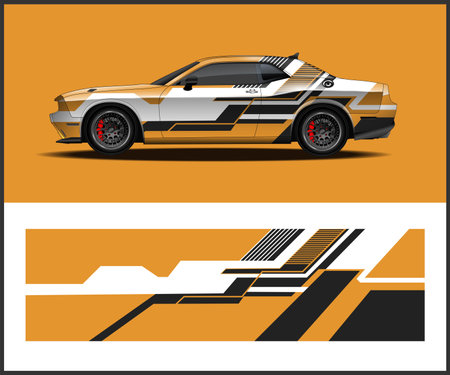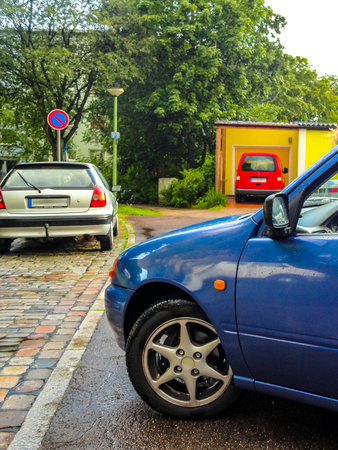Historical Overview of Estate Cars in the UK
Estate cars, known as station wagons in some parts of the world, have a rich and evolving history within the United Kingdom. The concept first took root during the early 20th century, when practicality began to outweigh pure aesthetics for British motorists. Originally derived from saloon models, estate cars were designed to offer increased boot space and versatility, catering perfectly to the needs of growing families and those requiring extra luggage capacity for long journeys or outdoor pursuits.
Their formal introduction into the British market can be traced back to the post-war period, particularly in the 1950s and 1960s, when brands such as Morris, Ford, and Vauxhall began producing estate versions of their popular saloon vehicles. As British lifestyles evolved—with more families enjoying weekend getaways and countryside excursions—the demand for vehicles that could comfortably transport both people and possessions surged. This cultural shift firmly cemented the estate car’s place in British motoring.
Key Milestones in the Evolution of Estate Cars
| Decade | Notable Models | Cultural Influence |
|---|---|---|
| 1950s | Morris Minor Traveller, Ford Consul Estate | Post-war family outings and practicality |
| 1970s | Volvo 245, Ford Cortina Estate | Growing middle-class demand and leisure travel |
| 1990s | Vauxhall Omega Estate, Audi A4 Avant | Shift towards premium comfort and modern design |
This evolution reflects not only advances in automotive engineering but also changing priorities among British drivers. From their utilitarian roots to their present-day role as stylish yet functional family cars, estates have become emblematic of British practicality blended with understated elegance.
2. The Unique Appeal of Estate Cars for British Drivers
Estate cars, often referred to as “estates” in the UK, have long held a special place in the hearts of British drivers. Their enduring popularity can be traced back to their remarkable practicality and versatility, which perfectly align with the needs and preferences of UK families. Unlike saloon cars or hatchbacks, estates offer a unique blend of spacious interiors, extended boot space, and flexible seating arrangements, making them ideal for everything from school runs to holiday getaways.
Why Estates Suit the British Lifestyle
The unpredictable British weather and diverse road conditions require vehicles that are adaptable and reliable. Estate cars provide ample space for shopping, luggage, pets, and sporting equipment—essentials for active family life. Their lower loading height compared to SUVs makes packing easier, especially in tight urban parking spaces common in cities like London or Manchester.
Key Practical Advantages of Estate Cars
| Feature | Estate Cars | SUVs | Hatchbacks |
|---|---|---|---|
| Boot Capacity | Large & Flat | Tall but less flat | Limited |
| Fuel Efficiency | Generally Higher | Lower (Heavier Build) | Higher |
| Maneuverability in Cities | Good | Poorer (Bulkier) | Excellent |
| Family Friendliness | Excellent (Versatile Seats) | Good (High Ride Height) | Adequate (Less Space) |
| Cost of Ownership | Moderate | Higher (Tax/Insurance) | Lower/Moderate |
The Emotional Connection: More Than Just Practicality
Beyond their functional advantages, estate cars have become a symbol of reliability and sensibility in British culture. For generations, they’ve been associated with memorable road trips, weekend adventures to the seaside or countryside, and even simple daily routines. This emotional connection reinforces their status as a staple choice among discerning UK motorists.

3. Comparing Estates: British Brands and Continental Competition
The British estate car market has always been a battleground between homegrown icons and distinguished European imports. When considering a new or classic estate, drivers across the UK weigh heritage, practicality, and driving experience. Let’s examine how classic British estates stack up against their continental rivals, focusing on key features that have fuelled their enduring popularity.
| Brand/Model | Country of Origin | Key Features | Enduring Appeal |
|---|---|---|---|
| Ford Mondeo Estate | UK (Built in Europe) | Spacious boot, comfortable ride, affordable running costs | Trusted family workhorse, widely available parts |
| Vauxhall Astra Sports Tourer | UK/Germany | Efficient engines, versatile rear seats, value for money | Mainstay for practical urban commuting |
| Jaguar XF Sportbrake | UK | Luxury interior, sporty handling, advanced tech | Aspirational choice with British flair |
| Volvo V60/V90 | Sweden | Safety features, minimalist design, comfort | Favoured by families for long-distance travel |
| Mercedes-Benz E-Class Estate | Germany | Refined drive, premium finish, innovative storage solutions | Status symbol with unmatched reliability |
The table highlights how each model caters to different priorities—be it practicality, prestige, or performance. British estates like the Ford Mondeo and Vauxhall Astra are celebrated for their affordability and functionality on UK roads. In contrast, European imports such as the Volvo V90 and Mercedes E-Class Estate attract buyers seeking advanced safety and luxury credentials.
Classic vs. Continental: What Drives Popularity?
The loyalty towards British estates is rooted in tradition; models often feature robust engineering tailored to local driving conditions—think narrow lanes and rural commutes. Meanwhile, European marques have raised the bar with cutting-edge technology and comfort. This diversity ensures UK motorists can choose estates that not only reflect their personal needs but also resonate with the nation’s motoring heritage.
A Lasting Legacy on British Roads
The continued presence of classic estate cars alongside modern European alternatives speaks volumes about their adaptability. Whether drawn to a Jaguar’s elegance or a Volvo’s practicality, British drivers enjoy an unmatched range of estate options—a testament to evolving preferences shaped by both nostalgia and innovation.
4. Evolving Trends: From Utility to Luxury
Estate cars have undergone a remarkable transformation in the UK, shifting from their humble origins as practical family workhorses to sophisticated vehicles that offer both utility and luxury. This evolution has been driven by changing consumer demands, technological advancements, and a growing desire for comfort and status without sacrificing practicality.
Meeting Modern British Expectations
Historically, estate cars were valued primarily for their spacious boots and ability to transport everything from gardening tools to sports equipment. However, today’s British drivers seek more than just cargo space—they want style, advanced technology, and superior comfort. Manufacturers have responded by integrating features typically reserved for executive saloons or SUVs into estate models.
Key Features in Modern Estate Cars
| Traditional Estate (1980s-1990s) | Modern Estate (2020s) |
|---|---|
| Manual windows Basic interiors Minimal infotainment Focus on boot capacity |
Panoramic sunroofs Premium leather upholstery Advanced infotainment systems Driver assistance technologies Hybrid and electric options |
The Rise of Technology & Comfort
The integration of adaptive cruise control, lane-keeping assist, and cutting-edge safety features has made modern estates appealing not only to families but also to professionals who value convenience and peace of mind. Additionally, brands like Volvo and Mercedes-Benz now offer estate versions with high-end sound systems, climate-controlled seating, and even massage functions—amenities once unthinkable in this car segment.
Lifestyle Alignment: More Than Just a Car
Today’s estates reflect the multifaceted lifestyles of British consumers: they accommodate dog owners heading for countryside rambles, urbanites needing flexible space, and executives wanting understated prestige. As environmental concerns rise, plug-in hybrid and fully electric estates are also gaining traction, ensuring these vehicles remain relevant as the market evolves.
5. Modern Choices: What Brits Value Today
Today’s British car buyers have a wealth of options when it comes to estate cars, and the landscape has changed significantly from previous decades. Modern estates cater not just to families seeking practicality, but also to professionals and eco-conscious drivers who demand more from their vehicles. To help illustrate current trends, lets examine what influences buyer decisions today and highlight some of the most popular models available in the UK.
Popular Estate Models in the UK Market
| Brand & Model | Key Features | Starting Price (£) |
|---|---|---|
| Volvo V60 | Spacious interior, advanced safety tech, plug-in hybrid option | £39,000 |
| Skoda Superb Estate | Best-in-class boot space, value for money, efficient engines | £32,000 |
| BMW 3 Series Touring | Dynamic driving experience, luxury finish, mild-hybrid system | £41,000 |
| Ford Focus Estate | User-friendly infotainment, practical design, economical engines | £28,000 |
| Toyota Corolla Touring Sports | Hybrid technology, reliability, low running costs | £31,000 |
Main Influences on Today’s Buyers
- Sustainability: Eco-friendly options such as hybrids and plug-in hybrids are increasingly popular as drivers look to reduce emissions and benefit from lower running costs.
- Technology: Brits now expect advanced driver assistance systems (ADAS), connectivity features like Apple CarPlay/Android Auto, and efficient navigation tools as standard.
- Practicality: Boot space remains vital for families and dog owners, with modular seating and flat load floors highly valued.
- Status & Style: Many buyers seek estates that combine everyday usability with a touch of luxury or sportiness, reflecting personal taste without compromising on function.
- Total Cost of Ownership: Fuel economy, insurance premiums, maintenance costs, and resale value play a significant role in the decision-making process.
The Shift Toward Greener Estates
The push towards sustainability is particularly evident in the rise of hybrid and electric estate models. Brands like Volvo and Toyota have led the way in offering plug-in hybrid options that allow urban commuting on electric power alone while retaining long-range flexibility. This trend is expected to accelerate as government incentives continue and ULEZ (Ultra Low Emission Zone) regulations expand across major UK cities.
A Balanced Approach to Modern Motoring Needs
Ultimately, modern British estate car buyers are looking for vehicles that offer a blend of practicality, comfort, technological sophistication, and environmental responsibility. With manufacturers responding to these demands through an ever-wider range of choices—from traditional petrol estates to cutting-edge electrified models—the appeal of the estate car looks set to endure well into the future.
6. The Future of Estate Cars in the UK
The future of estate cars in Britain is set to be shaped by several key trends: electrification, increasing urbanisation, and the changing needs of modern families. These factors are not only altering how Brits view estate cars but also influencing manufacturers’ strategies for the coming years.
Electrification and Estate Cars
As the UK government pushes towards net zero emissions, electric vehicles (EVs) are becoming more mainstream. Major brands are already introducing electric estates, combining traditional practicality with eco-friendly technology. British drivers who value both space and sustainability now have more options than ever before.
Key Benefits of Electric Estates
| Feature | Benefit for UK Drivers |
|---|---|
| Zero Emissions | Lower road tax and access to clean air zones, especially in cities like London |
| Instant Torque | Smooth acceleration suited for both urban and rural driving |
| Spacious Interiors | No compromise on luggage or family space compared to petrol/diesel models |
| Reduced Running Costs | Savings on fuel and maintenance over time |
Urbanisation’s Influence on Car Choices
With more people moving into towns and cities, the way Britons use estate cars is changing. While larger SUVs may struggle with narrow streets and tight parking spaces, estates retain their reputation for being more manageable in urban environments while still offering ample boot space for shopping, sports kit, or even pets.
Evolving Family Needs and Versatility
The classic British family estate car has always been about adaptability. Today’s families might need to juggle prams, bikes, school runs, and weekend escapes. Modern estate cars are designed with modular seating, advanced safety tech, and connectivity features that cater to this evolving lifestyle.
Comparing Estate Cars: Past vs Present Features
| Traditional Estates (1990s-2000s) | Modern Estates (2020s onwards) |
|---|---|
| Petrol/Diesel engines Manual gearboxes Basic safety features Simple interiors |
Hybrid/Electric powertrains Automatic transmissions Advanced driver assists Infotainment systems & smart storage solutions |
Looking ahead, estate cars in the UK will continue to evolve alongside British values—practicality, efficiency, and understated style. With electrification gaining pace and manufacturers responding to urban living pressures and family demands, the estate car is poised to remain a staple on British roads for years to come.

